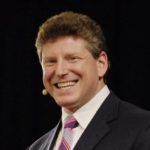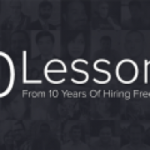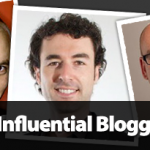
Zero-Hour Workweek Maverick Reveals His Secrets To Living Life On Your Terms
Today I have a very special guest as an interviewee – Jonathan Mead of IlluminatedMind
I have been a fan of illuminatedmind for some time – it appeals to my values and in particular I like how Jonathan inspires people to Live On Your Own Terms. He also has a very bold statement on his website that makes me smile every-time I see it:
Don’t Read This Website If You Want To Be Ordinary
Jonathan says illuminatedmind is for the unconventional soul, the wanderer, vagabond, outlier, and those of us who walk the edges – I like that. Indeed Jonathan is an amazing example of someone who has took “Personal Development” – stood it on its head and come up with a refreshing new approach. As Jonathan says:
We’re born free, but somewhere along the way we become domesticated and we lose our authenticity. We start thinking we need to become something we’re not, and hold it against ourselves that we aren’t “what we should be.”
We should never go against ourselves, and never change who we are to succeed. The purpose of Illuminated Mind is to incite a ruthless resolve deep within to go with yourself; to empower and emancipate your most authentic self.
Jonathan also in this interview introduces us to the Zero-Hour Workweek (it may not be what you think) and explains why he doesn’t care for the word: monetize.
Enjoy the interview (Podcast and Transcript Below) and as always I look forward to your comments.
best wishes
Michael
** Click Here To Listen To This Interview With Jonathan Mead **
Jonathan Mead Interview
Interview Transcript:
Michael Dunlop: Hello, everyone. Today I’m with Jonathan Mead. So I would just like to welcome you Jonathan. Great to have you here today.
Jonathan Mead: Thank you, yeah, it’s awesome to be here and to speak with your readers, and hopefully I can share some kind of value today.
Michael: All right, well, I’ll jump in straightaway. I understand you’ve recently gone self-employed and you’ve been doing this now full-time. How were you able to do this? So many people who are listening to this right now have their main goal is just getting away from the nine to five and not working for the man and doing it on their own terms.
Jonathan: I personally believe that you can have all the tools in the world, you can have all the resources. You can have a really great mentor. You can have the best training you possibly can find. But I really think the shift happens — and what’s really going to make it inevitable that you make this happy for yourself whatever you want to call it, ditching the 9-to-5 or working for yourself — if you want to make that happen it really starts in your mind.
I personally believe the biggest attribution to making this happen for myself was knowing 100% without a doubt that this was going to happen. It was only a matter of time and I would do whatever it took and I would try everything that I possibly could try. I would fail over and over if that’s what needed to happen, but I knew that it was going to happen, that it was just a matter of time.
So I think it’s that kind of just certainty that, you know, that you’ll do whatever it takes. It doesn’t matter whether you have enough resources or whether you have enough time you are going to make the time. You are going to make the resources.
Yeah, I think that was the biggest shift for me.
Michael: What would you say to those people who don’t really have too much time to spend, to get to their goals? I mean, we’re both rather young compared to a lot of people trying to do this, so we can waste a bit more time. But a lot of people, they need this now. This has to happen for them as soon as possible.
Jonathan: Yeah, you know, for some of those people I could definitely relate. My situation wasn’t — it’s obviously not exactly the same as everyone’s. Some people have kids. Some people have grand-kids. Some people have lost their job and now they have to make it happen.
So a lot of people in a lot of different situations. But personally for me… what initially happened is that I started to read a lot of stuff online and I started to get into the kind of entrepreneurial space. And once I started to see how much more it made sense for me to work for myself and how much better that would make the quality of my life, I knew that had to happen. It made me really frustrated with my current situation because I knew where I wanted to be but I wasn’t there.
I wasn’t getting there as fast as I wanted to be. So yeah, for me it was a necessity that I needed to make time. So personally I think you have to really ask yourself some hard questions. You have to ask yourself what am I willing to give up in order to make that happen.
There’s the obvious time-wasting things that everyone mentions, like watching TV or surfing the Internet or spending time reading blog posts that have no point or have no purposes. Those obvious time-wasting things which a lot of people talk about, but there is also commitments that we make that we think are non-negotiable that really are optional.
So it’s taking a look at those things as well. Like maybe you had some kind of committees or groups that you are involved in that aren’t really necessary that you could drop. Maybe there’s some hobbies that you don’t need to be spending so much time on.
Maybe you don’t need to be spending that much overtime at your work, trying to impress your boss and keep up with everyone else. Maybe it’s that you don’t need as expensive of a car as you bought, that is requiring you to make $600 car payments that makes you have to work 10 more hours a week.
It’s taking a look at those things that are kind of like the hidden things that we think don’t really make much of a difference, but they really do. So I think it’s really just taking a hard look at those things and really being honest with yourself and asking yourself: do I really want this? What am I willing to give up at least temporarily until you make it happen?
Michael: Oh, great advice. And you mentioned that you did look online to find some ways to make money yourself. What was the way you found that worked best for you and why do you think it did work for you?
Jonathan: The first thing that I found that worked pretty well was my e-book. I think that’s fairly traditional way that a lot of people start making money online, at least if they’re in the kind of information product marketing realm, so to speak. That was pretty effective for me because I would say I had a lot more success with that, promoting my own product.
Before that I was promoting some other people’s stuff as an affiliate and that wasn’t as effective for me as promoting my own stuff, because I actually had that trust and that relationship both with my readers. So that was pretty effective for me. After that, that just kind of grew organically into coaching. It seemed like the next step.
I wanted to help people on a more personal level and really get inside the hearts and minds of people and see what kind of problems they were having and get to know people personally, so I could really know my audience a more intimate level. That really helped me with being able to see what kind of, that those biggest problems were. What those biggest frustrations were.
And that really helps you figure out where you can provide the most value. So even if you are not interested in coaching or consulting on a long-term basis, it can help to do some kind of free consultations or free coaching just to be able to get to know people and get to know your clients on a more personal level.
It really helps you to make a more emotional connection when you do release another product. So that was kind of the organic evolution for me.
Michael: And you mentioned that you sold an e-book and you have done coaching. Which would you say was the best for yourself or the time put in versus the return you get?
Jonathan: Yeah. It’s really hard to say because they’re really two totally different markets. For me, I got a lot of value out of the e-book and creating it. But the thing is, after you do that you don’t have a lot of interaction with your customers and you don’t have a lot of interaction with the community of people reading it, as much as you do with something, say, one-on-one or in a group setting or something like that with coaching. Or even seminars or things like that.
So I would say that it really depends on your goals. I had some different goals. I did coaching because I, number one, wanted to connect with people on a deeper level. And then I also wanted to create another income stream for people that wanted to take what they had learned in my e-books to a higher level.
My goals were different for each thing. I think for anyone who is listening, it’s really about what kind of market you want to be in and how you want to market yourself. Obviously coaching on consulting, there’s a ceiling that you’re going to reach, because you can only make so much money based on how much time you have.
If that’s OK to you and you really value that one-on-one interaction with people, then go for it. You’re going to have to learn how to market yourself in a much different way than a product, which we obviously don’t have time to get into right now. But I really think it really depends on what you want out of it. If you start asking that question, then you can get into that.
Personally, I value the coaching but I don’t have any goals to take it to a huge scale. I just like having three or four clients a month, and that’s fine for me.
Michael: That’s cool. I get what you’re saying. And it sort of give you also ideas what to cover on your own site. Because they sort of tell you the questions they’re still not too sure about themselves.
Jonathan: Yeah, absolutely. It’s like free content.
Michael: Yeah, that’s good. So you’ve mentioned you sell coaching and you sell your own e-book. I take it this is all from your blog?
Jonathan: Yeah, it’s all kind of evolved from my blog. I do have another project that I just launched at the beginning of October as well. It’s called Paid to Exist, and it teaches people how to create an income out of their passion. We’re on week six of that out of eight weeks, and that’s going really well as well.
But yes, it’s all evolved out of my blog. It’s just been really awesome to see it happen. Once you have it going, the coolest thing is you can always find ways to optimize things, you can always find ways to continually make things more and more effective. The only thing that’s really limiting you is asking yourself how far you want to take this.
Michael: Sounds good. I have thousands of people who visit my site regularly who have recently set up their own blogs. What’s the difference between when you first set up your site to actually monetizing? What was the transition you had from not making money to finally making money and making enough to give up your job?
Jonathan: That’s a great question, because that’s something that I personally really struggle with. Before I had this blog and now really this business, I had never run a business in the past except for maybe mowing lawns for neighbors when I was 10 or 11y years old.
When I first started this blog, I had this mindset of if I can just get enough readers, if I can just get enough subscribers, I can find a way to monetize things. You hear that word a lot in the blogging realm, “monetize.”
I personally can’t stand that word, because it implies that you’re taking something that’s not meant to make money, or that doesn’t start with the purpose of making money at least, and then trying to figure out a way to make money from it.
So instead of starting with that paradigm, this is shift that I had to make, because I did start with that monetization paradigm. I had to shift to the paradigm of I’m running a business, these are the things that I need to do to make money, how can I use my blog in way that supports these objectives?
So it’s going from the mindset of how can I monetize this content or this whatever into how can I run this business in a way that’s supported by a blog?
Michael: All right, cool. That sounds good. I’ve read the “Four-Hour Workweek, ” a great book. But you’re brought out you own e-book for you blog, called the “Zero-Hour Workweek.” I love the idea of it. It’s something that I apply to what I’m doing today.
It would be good for you to share with my readers what “zero-hour workweek” means.
Jonathan: I talked a little bit earlier about figuring out that it made more sense for me to work for myself, and that in the beginning it really frustrated me. That was a really big, eye-opening experience for me, realizing that I can be much happier working toward my own goals and furthering some personal mission that I have and the kind of change I want create and the difference I want to make in the world.
What really, really frustrated me is that in our society, we live in this paradigm or this – we have this framework really that says that work is a chore and life is what’s fun. We’re constantly thinking that we have to do one in order to do the other. You work in order to have your life and when you’re spending time in your “life,” you’re basically avoiding the work, and dreading and counting down the time to when you have to go back to work.
That kind of concept really frustrated me because I thought, why should there be such a big dichotomy between those things? Why can’t those things exist harmoniously? For me, it was just about realizing that even though there was this big, giant paradigm out there that was looming over me and looming over so many other people that want to do something that they’re passionate about, just because a lot of people chose to live that way, doesn’t mean that you have to choose that as well.
Because it’s not a requirement. What that paradigm is, is it’s really an agreement. So if you stop agreeing, then you can choose something different.
So what the zero-hour workweek is really about, what this whole philosophy is really about, is realizing that there doesn’t have to be a boundary between your work on one hand and your life on the other hand.
There doesn’t need to be any compartmentalization.
Your work can be your life, and your life can be your work, and that’s actually the best way to live.
Michael: All right. Yeah. That really makes sense. So you’ve been running your own Internet business for a while now. Life online and the whole Internet gives you the freedom, most of the time, to do what you want when you want. What would you say the Internet lifestyle means to you?
Jonathan: It’s given me the freedom to do a lot of different things. I study martial arts and I can do Jeet Kune Do during the day whenever I want, which is something I wouldn’t want to have to try to do in an office, because I’d probably get thrown out by security or something. [laughs]
It’s allowed me to book a plane ticket within a couple of weeks and go fly out and spend time with my family without having to ask a boss if it’s OK. It’s allowed me to do a lot of things. I can basically set my own schedule and work when I want.
That’s something I’ve really had to train myself to realize, that I have the ability to do that. Because when you leave the 9-to-5, you can start bringing in those old patterns with you to your new work.
So that’s something I’ve had to constantly remind myself that I can work four hours in the morning, take five hours off and spend the afternoon with my wife and go see a movie or something and then I can work a little bit more at night.
It’s really just about how you want to design it and that’s really the coolest thing to me. It’s really like constantly evolving process of seeing, OK, this is cool. This doesn’t work. What do I want to change and just keep refining it?
Michael: Right. And one of the main things you talk about in your blog is how it came in your dreams of being who you wanted to be. So many people aren’t able to live their dreams and do the things they want to be.
Which is kind of silly, because it’s 2009, we can do whatever we want. What would you say to those people, whoever it is, to make money and then do something or just to take something off their bucket list and get something done?
Jonathan: It really comes back to that whole thinking that you have to live by what you believe is the proper way to live or what is the acceptable way to live. And really, if you find that you take those risks and you do what you want to do, you’re going to find out that your whole life didn’t fall apart and nothing exploded. [laughs] And that everything is OK and it’s going to work out.
So I think start taking small risks and start challenging the status quo in your life. Start with little things and then build your way up to the things that really scare you. As you kind of build that courage, I guess, then it will be easier and easier for you to do it with the bigger things in your life, like say quitting your job or something like that.
Michael: Wicked, that sounds good. So you start making money online and you started taking all the dreams you want to do yourself and just living life how you want to, on your own terms. If you could gain a time machine and go back and do it all again, what would you do differently?
Jonathan: I think one of the things that I would do differently is start out with my business operating it as a business and as a real professional. So a lot of bloggers — and this goes back to that monetization mindset. A lot of bloggers and myself, I was guilty of this, too. They just want to run a blog and they just want to do something that’s fun and they don’t want to treat it like a business.
They don’t want to be a marketer. They don’t want to have to do accounting. They don’t want to have to do administrative stuff. They just want to run their blog and then put up some ads and hopefully they’ll make a few hundred dollars a month and then everything will be fine.
But if I had to go back, I would change that and I would start out that this is my business. I’m setting up my corporation. I’m setting up my books. I’m setting up my accounting. I’m setting up all my systems. I’m treating this as a real professional business and figuring out what are the things that I need to do to make money are and then kind of use that as a tool to be a little bit more serious about it.
Because I think that once you make that shift, it’s a lot easier to start creating the income and start getting the other stuff rolling, because you don’t have as much mental resistance.
Michael: No. Completely great. Its something most bloggers get wrong. Especially with the whole having accounts and stuff, because it’s something where a lot of people slip up. I think from the beginning you’ve got to realize, is this what you want, to make money online, or is it just the fact that you have a voice and you want people to hear it?
That’s definitely important, you can talk about. OK, I’ve got a few quick questions – just two. What did you like most about the Internet?
Jonathan: I like that it’s able to connect so many different people that have different interests. So it really empowers community and it empowers tribes. I think that’s my favorite thing.
Michael: Wicked. What do you like least about the Internet?
Jonathan: I like least that it can, if you are not careful, stop you from realizing that there’s another more intimate version of the Internet or Internet version of reality out there. So you can forget that you can email someone 100 times, but if you just pick up the phone once, you can likely make a deal with someone in five minutes.
So it can be easy to forget stuff like that and it can be easy to forget the value of kind of the face-to-face communication.
Michael: So that’s a fair point. What’s the best advice you have ever been given?
Jonathan: Whoa. [laughs] The best advice I have ever been given. I think the best advice I have ever been given it to not take life too seriously and to realize that it isn’t going to kill you if you don’t get everything done on your to-list today. It’s not going to make that much of a difference in the long run. You are not going to be sitting on your deathbed wishing that you would have installed a better productivity system.
Michael: All right, cool. And who do you look up to model yourself on?
Jonathan: One person I look up to a lot is my martial arts teacher. And just living consciously and being more aware of your health. Another person I look up to is Steve Pavlina, the personal development blogger.
In the marketing niche I look up to Eben Pagan a lot.
Michael: Great.
Jonathan: So those just a few people.
Michael: They are good people to model yourself on. Very cool people. All right. Thanks very much, Jonathan, for sharing some great advice with us.
Find out more about Jonathan Mead at http://paidtoexist.com










